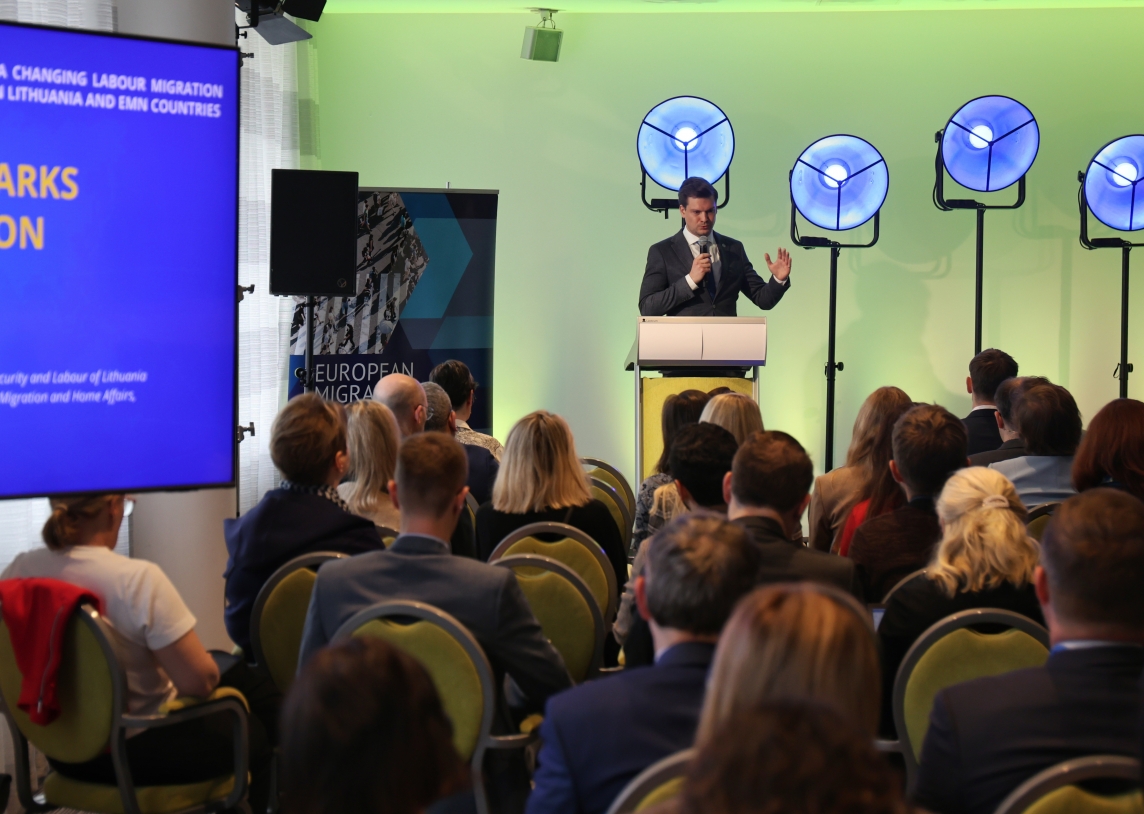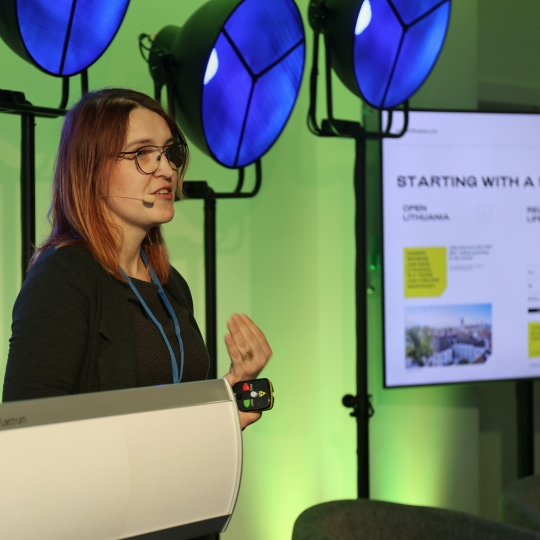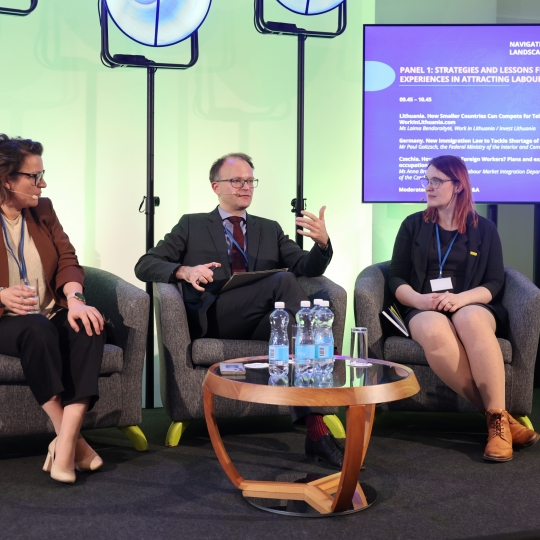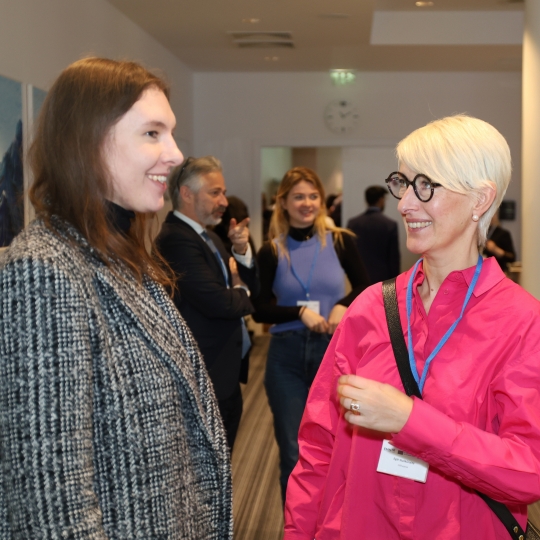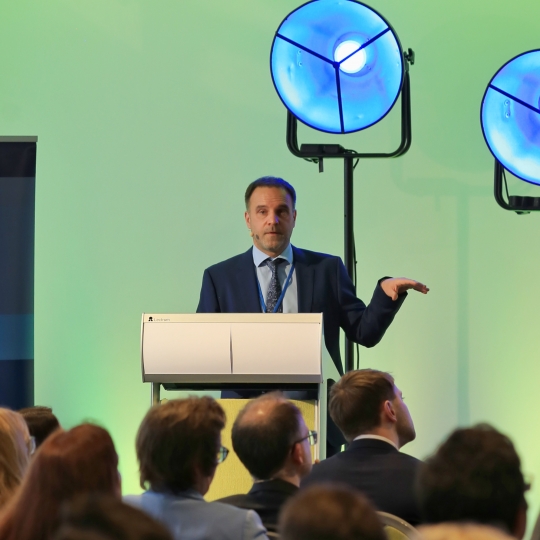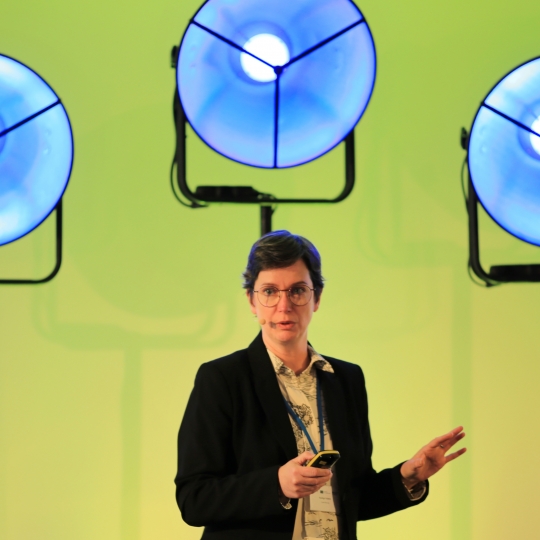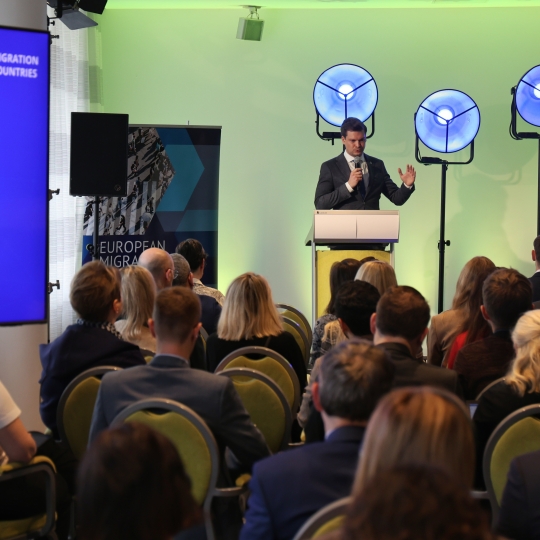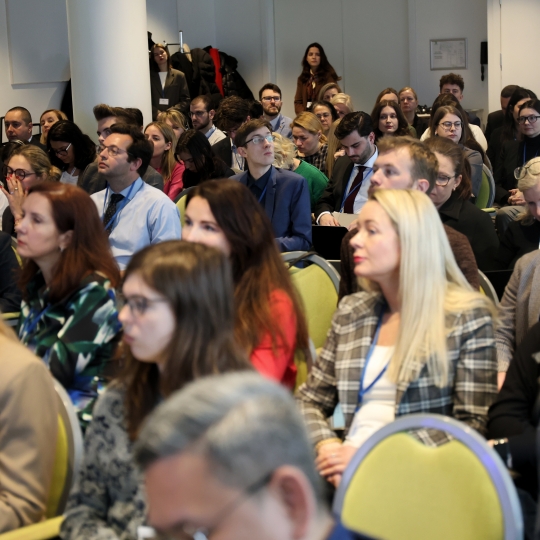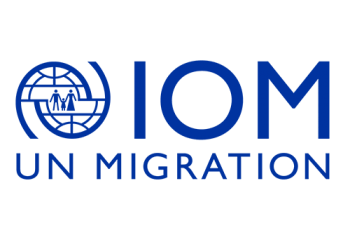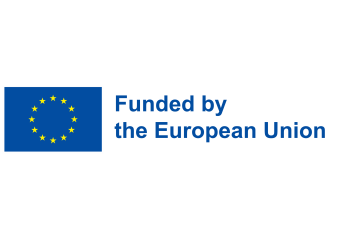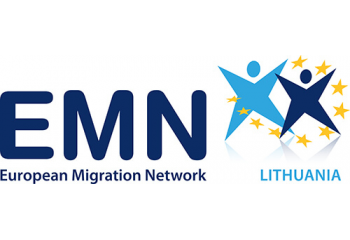News
Experts from Lithuania and abroad discussed labour migration challenges
In recent years, the topic of migration has become an integral part of the European Union (EU) political agenda. Its relevance is further highlighted by the challenge of skilled workfoce shortage facing the Union. In 2022, the lack of employees was most acutely felt in the construction and healthcare sectors, with negative trends observed in the professions of natural sciences, technology, engineering, and mathematics.
Furthermore, the EU countries are losing the competitive battle in the global talent market. Despite a high standard of living and available job opportunities, professionals who create high-added value often choose New Zealand, Australia, the USA, or Canada over European countries. For this reason, the European Commission emphasizes that the EU's future competitiveness will depend on its ability to attract the best talents from around the world by creating a favourable environment for them.
Currently, Lithuania has issued 125 thousand residence permits for work purposes, but there is still a shortage of drivers, qualified specialists in health training, engineering specialties, machine equipment operators, information and communication technologies, and other professionals who create high-added value. How is Lithuania managing to navigate in this changing context of labour migration? What lessons could Lithuanian authorities learn from other countries in trying to attract needed workers? These issues were discussed by labour migration experts from the Czech Republic, Germany, the Philippines, Lithuania, and other countries at an international conference organized by the European Migration Network (EMN).
Attracting Global Talents – From Inclusive Stories to Institutional Reforms
For small countries such as Lithuania, being competitive within the EU and on a global scale hinges on attracting talent. A representative from Work in Lithuania even notes that small states can have an edge in the competition for talent by offering extensive integration support to highly skilled professionals before and after they relocate. Lithuania, in particular, employs creative strategies to draw talent. A notable example is the compelling advertising campaigns by Work in Lithuania, designed to attract foreign specialists to the country.
Moreover, representatives from German and Czech institutions shared their countries' experiences in addressing emerging labour shortages. A representative of the Federal Ministry of the Interior discussed a recently adopted immigration law in Germany aimed at addressing the shortage of qualified workers in the country. Among other changes, the law provides that workers in unregulated professions with two years of practical experience can now work in Germany without requiring official recognition of their qualifications, provided they have a diploma or similar professional qualification recognized in the country where the qualification was obtained.
A representative from the Czech Ministry of Labour and Social Affairs shared the Czech government's plans to address labour shortages in the country. According to her, aiming to differentiate the entry of highly skilled foreigners into the country's labour market, the Czech Republic will introduce a point-based system that will give priority to foreigners with greater potential to contribute to the development of the country's economy.
Ensuring the Rights of Foreigners While Attracting Labour
Attracting the needed labour from abroad also requires measures to ensure migrants' rights. This idea was further developed by an expert from the International Organization for Migration. The expert presented a project being developed by the International Organization for Migration and the Italian National Labour Inspectorate to prevent the exploitation of labour migrants from third countries. The project's activities include support and skills improvement training by specialists from the International Organization for Migration to Italian government institutions, information campaigns about the harm of illegal work, and cooperation with private sector companies.
Insights were also shared by a representative from the Philippine Department of Migrant Workers, who introduced the conference participants to the Philippine government's program to promote work abroad. The developing program fosters a comprehensive repatriation process, creating opportunities for Filipino workers to enhance their skills abroad while encouraging their return to the country.
Finally, the conference was summarized by Eitvydas Bingelis, head of the International Organization for Migration Vilnius Office. "States need a clear migration policy regarding the labour market. It is important to talk about how processes are taking place and what decisions states need to ensure the labour market is filled. It is especially important to know what the state's migration policy goal is, and that decisions should be made based on research and data," emphasized E. Bingelis.
The EMN Lithuania conference took place on April 24 in Vilnius. It was the first event held together with the countries of the Prague Process. The conference was attended by more than 100 participants from 30 different countries.
